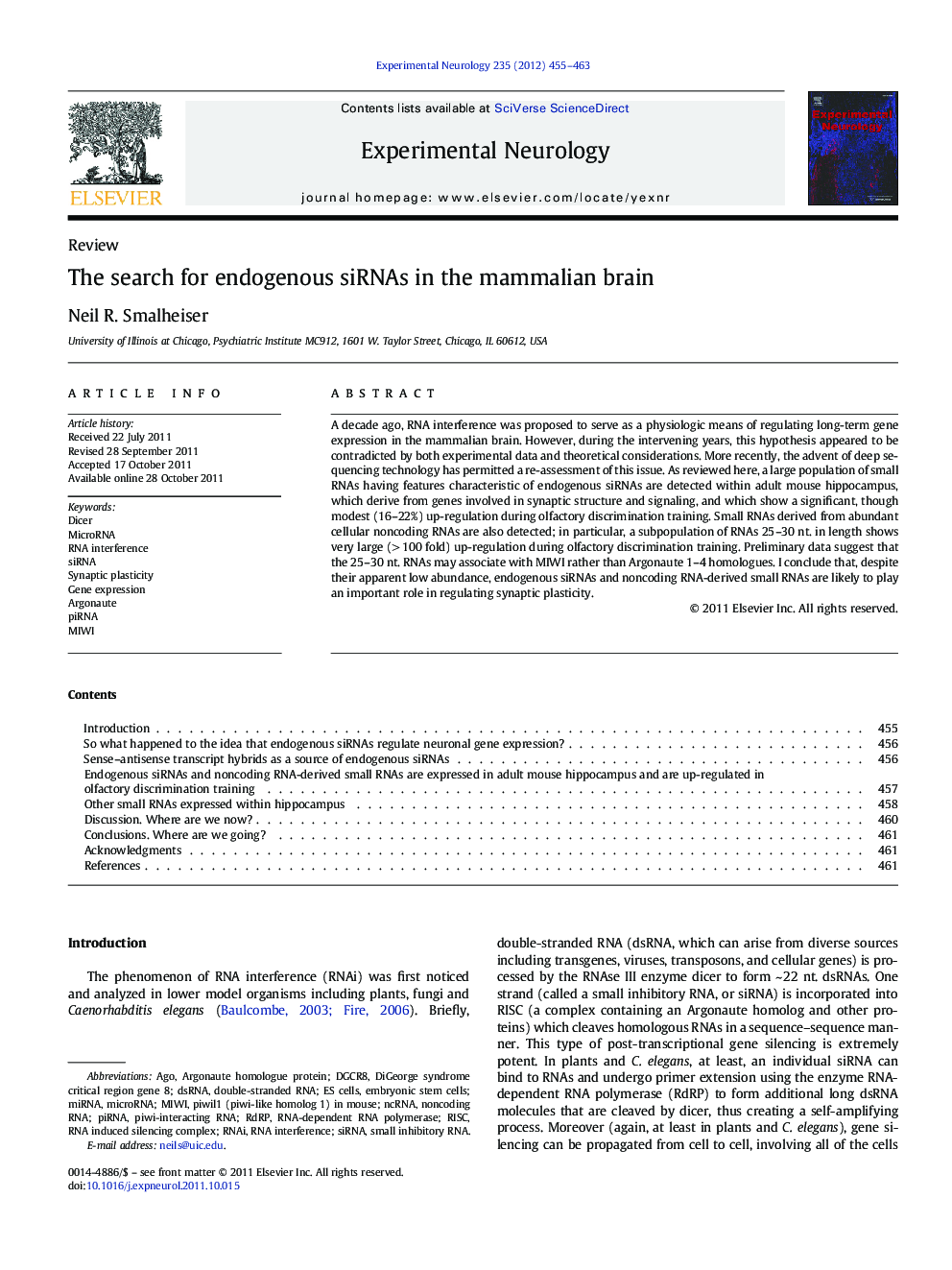| کد مقاله | کد نشریه | سال انتشار | مقاله انگلیسی | نسخه تمام متن |
|---|---|---|---|---|
| 6018641 | 1186525 | 2012 | 9 صفحه PDF | دانلود رایگان |

A decade ago, RNA interference was proposed to serve as a physiologic means of regulating long-term gene expression in the mammalian brain. However, during the intervening years, this hypothesis appeared to be contradicted by both experimental data and theoretical considerations. More recently, the advent of deep sequencing technology has permitted a re-assessment of this issue. As reviewed here, a large population of small RNAs having features characteristic of endogenous siRNAs are detected within adult mouse hippocampus, which derive from genes involved in synaptic structure and signaling, and which show a significant, though modest (16-22%) up-regulation during olfactory discrimination training. Small RNAs derived from abundant cellular noncoding RNAs are also detected; in particular, a subpopulation of RNAs 25-30 nt. in length shows very large (>Â 100 fold) up-regulation during olfactory discrimination training. Preliminary data suggest that the 25-30 nt. RNAs may associate with MIWI rather than Argonaute 1-4 homologues. I conclude that, despite their apparent low abundance, endogenous siRNAs and noncoding RNA-derived small RNAs are likely to play an important role in regulating synaptic plasticity.
⺠Endogenous siRNAs are detected within adult mouse hippocampus. ⺠These derive from genes involved in synaptic structure and signaling. ⺠Small RNAs derived from abundant cellular noncoding RNAs are also detected. ⺠25-30 nt. RNAs showed very large (> 100 fold) changes during learning. ⺠Endo-siRNAs and ncRNA-derived small RNAs may regulate synaptic plasticity.
Journal: Experimental Neurology - Volume 235, Issue 2, June 2012, Pages 455-463